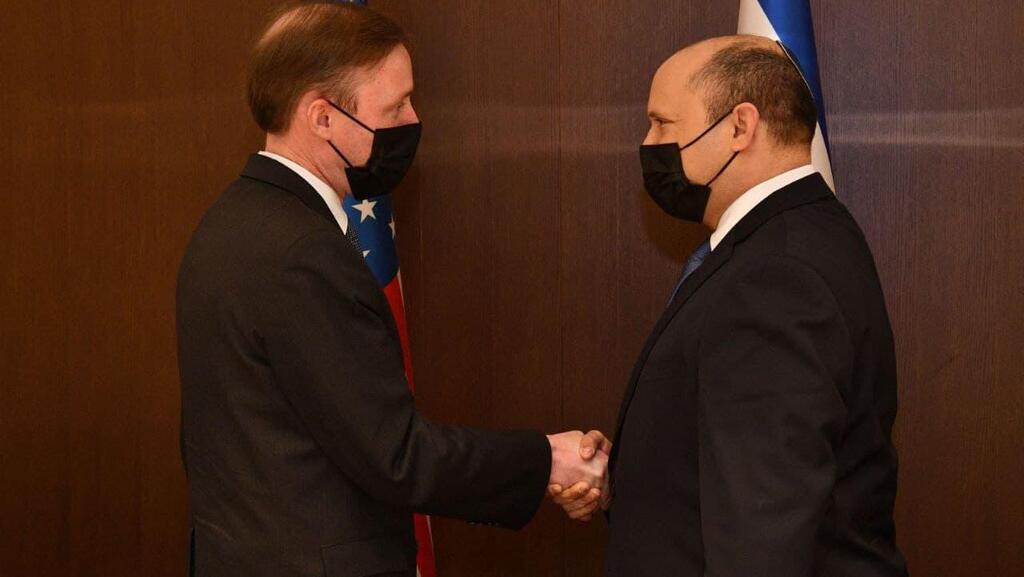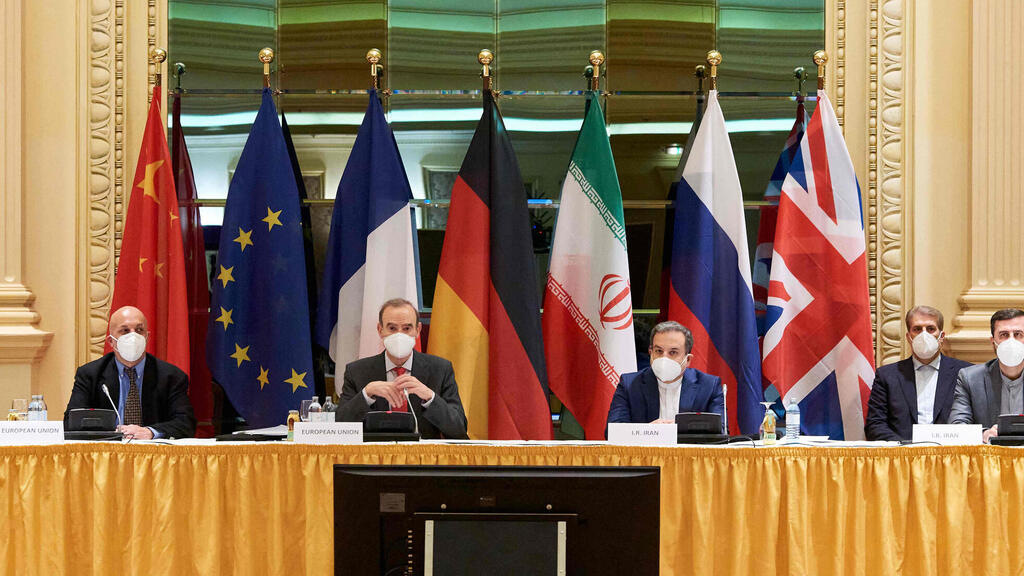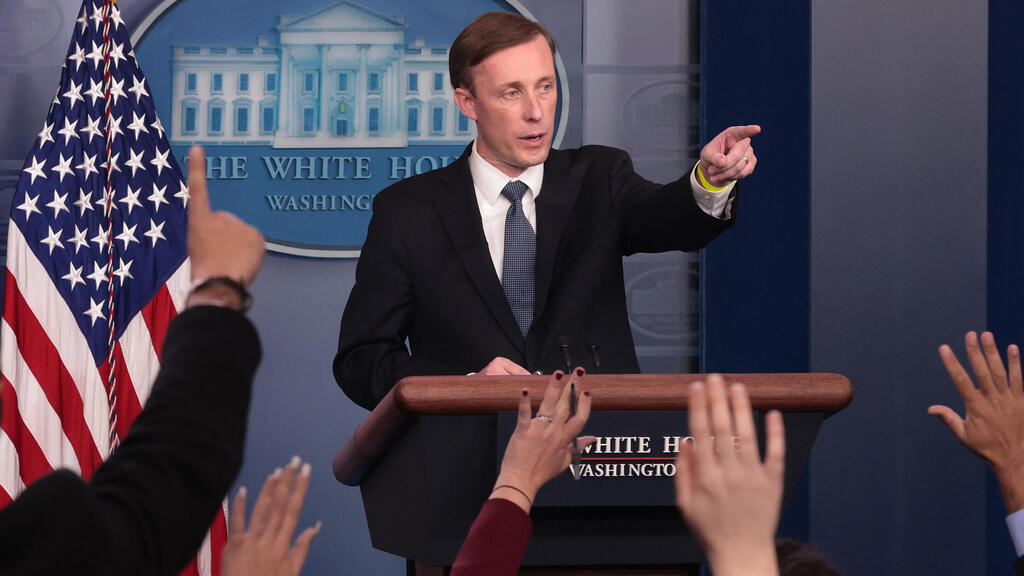Getting your Trinity Audio player ready...
The United States and Israel are at a "critical juncture" on various security issues and should develop a joint strategy, U.S. National Security Adviser Jake Sullivan told Prime Minister Naftali Bennett during a Jerusalem visit on Wednesday.
Jake Sullivan landed in Israel late Tuesday and met with President Isaac Herzog, who voiced "concern with Iran's progress toward nuclear weapons under the cover of the negotiations in Vienna", the president's office said.
3 View gallery


U.S. National Security Adviser Jake Sullivan told Prime Minister Naftali Bennett
(Photo: GPO)
Israel has criticized talks in Vienna to restore the 2015 deal negotiated between Tehran and major powers that saw Iran agree to curbs on its nuclear activities in exchange for sanctions relief.
Sullivan said he had been sent to Israel by President Joe Biden "because at a critical juncture for both our countries on a major set of security issues, it's important that we sit together and develop a common strategy, a common outlook".
"What happens in Vienna has profound ramifications for the stability of the Middle East and the security of Israel for the upcoming years," Bennett told Sullivan, referring to the site of the negotiations with Iran this months.
Ahead of Sullivan's visit, a senior U.S. administration official told reporters that Iran will "be very high on the agenda" for the Israel trip, during which Sullivan is also scheduled to meet Palestinian President Mahmud Abbas in the West Bank.
Lead U.S. Iran negotiator Rob Malley told CNN Tuesday that there are only "some weeks" left to revive the deal if Tehran continues its nuclear activities at the current pace.
Negotiations to restore the pact known as the Joint Collective Plan of Action resumed in November. Washington was a party to the original agreement, but withdrew under president Donald Trump in 2018.
3 View gallery


Diplomats of the EU, China, Russia and Iran at the start of talks on a U.S. return to the 2015 nuclear deal, at the Grand Hotel in Vienna
(Photo: AFP)
President Joe Biden's administration has warned it may soon be too late to revive the JCPOA. "It really depends on the pace of their nuclear process," said Malley, the U.S. special envoy for Iran.
"If they halt the nuclear advances, we have more time. If they continue at their current pace, we have some weeks left but not much more than that, at which point the conclusion will be there's no deal to be revived," he said.
Iran says it only wants to develop a civil nuclear program but Western powers say its stockpile of enriched uranium goes well beyond that, and could be used to develop a weapons capability.
First published: 10:47, 12.22.21


